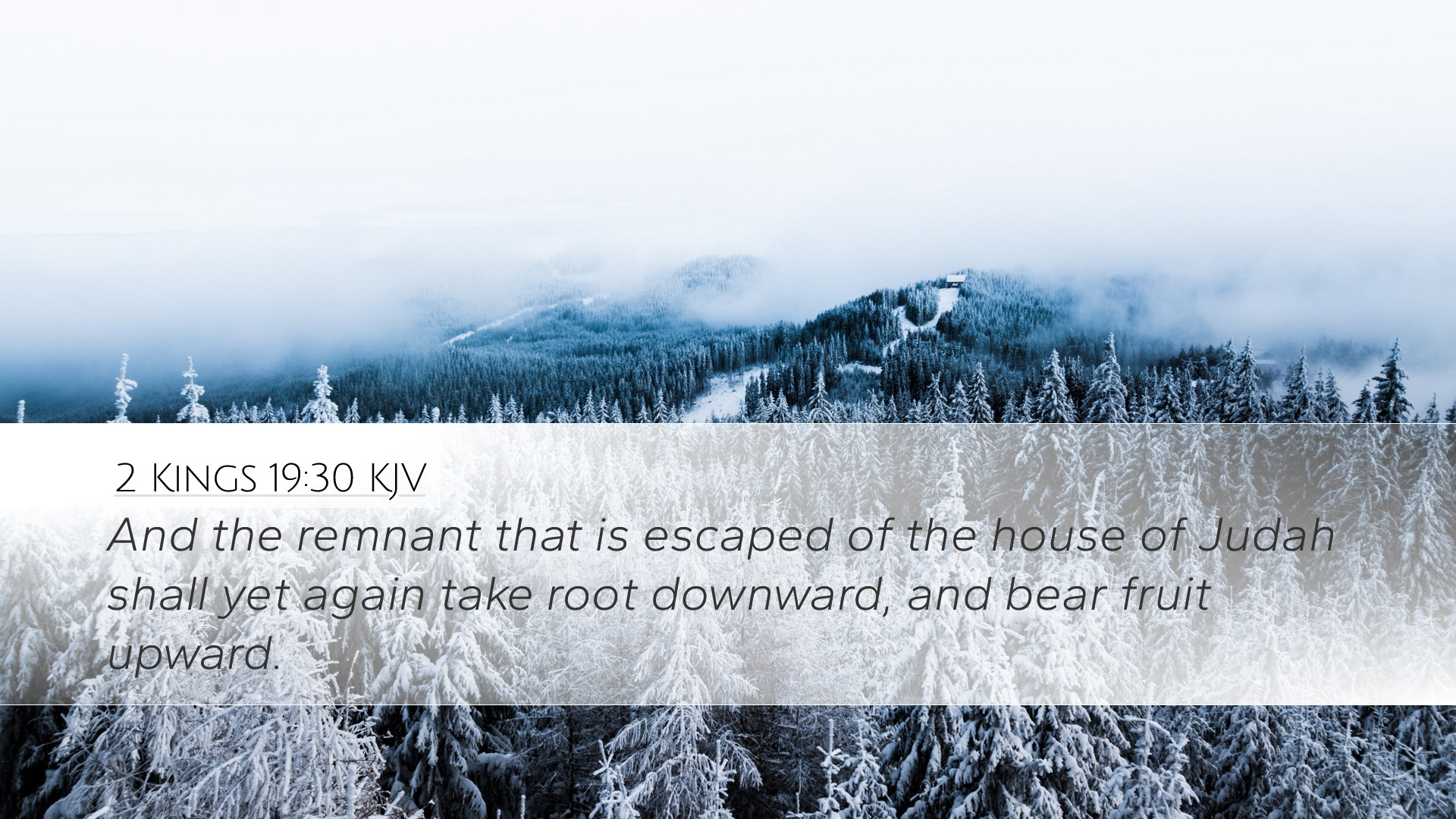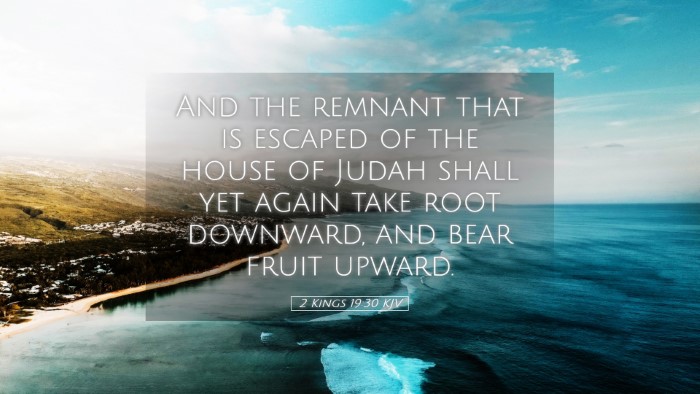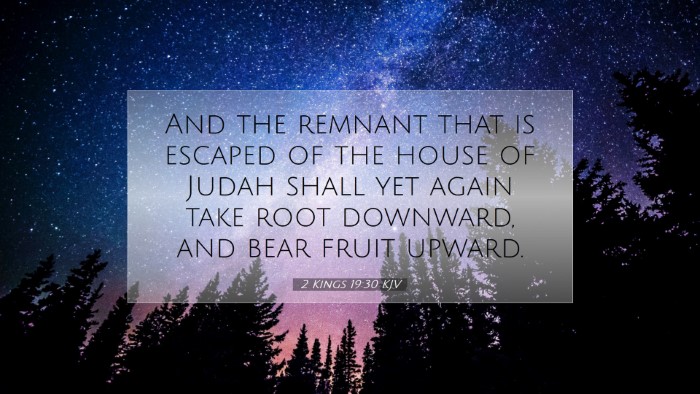Commentary on 2 Kings 19:30
2 Kings 19:30 (NIV): "The surviving remnant of the people of Judah will take root below and bear fruit above."
This verse speaks profoundly about hope and restoration for the people of Judah, offering theological implications that resonate throughout scriptural history. Below is an integrated commentary summarizing insights from esteemed public domain commentaries by Matthew Henry, Albert Barnes, and Adam Clarke.
Contextual Background
The context of 2 Kings 19 depicts a significant moment in Israel's history when the Assyrian empire threatened Jerusalem. King Hezekiah, faced with this imminent peril, turns to the Lord in prayer, seeking deliverance. This chapter encapsulates his pleas and the divine assurance received in response.
Thematic Significance
The declaration given in verse 30 serves as a reassurance to the faithful remnant of Judah. Not only does it emphasize the survival of a portion of the population, but it also denotes their future vitality and spiritual fruitfulness.
Elements of Rooting and Bearing Fruit
-
Rooting Below:
The imagery of taking root below implies a grounding in faith and a deepening relationship with God. It signifies stability, strength, and the preparation for growth. Matthew Henry highlights this rooting as a divine promise, indicating that God will enable His people to withstand trials and tribulations.
-
Bearing Fruit Above:
The promise of bearing fruit above speaks of spiritual vitality and the outworking of God’s blessings in the lives of the people. Albert Barnes draws attention to the idea that the fruit symbolizes the blessed outcomes of a faithful life, such as righteousness, peace, and joy in the Holy Spirit.
Theological Implications
2 Kings 19:30 serves as a microcosm of God’s covenant faithfulness. Adam Clarke elaborates on the idea that this verse signifies not just physical survival but also spiritual rejuvenation. The remnant’s existence underlines the fulfillment of God’s promises, as He preserves a people for Himself despite overwhelming odds.
Relationship to Remnant Theology
The concept of a "surviving remnant" is crucial in biblical theology. Throughout Scripture, God often preserves a remnant to carry forth His purpose, underscoring the theme of hope amid judgment. This verse indicates that even when faced with dire circumstances, God’s plan remains unthwarted.
Practical Applications
-
Encouragement in Trials:
For pastors and theologians, this verse is a potent reminder that God can transform despair into hope. When congregations face challenges, the promise of rooting and fruitfulness can be a source of encouragement.
-
Faithfulness of God:
The faithfulness of God amidst chaos and uncertainty is an essential teaching derived from this passage. Scholars are encouraged to lead discussions that remind believers of God’s unchanging character and His sovereign ability to sustain His people.
-
Spiritual Foundations:
The imagery of rooting below can prompt practical examinations of foundations in spiritual practices. In teaching contexts, this can lead to discussions about nurturing a deeper relationship with God through prayer, study of the Word, and community.
Conclusion
In summary, 2 Kings 19:30 not only offers a historical assurance for the people of Judah but also serves as a rich theological foundation for understanding God’s faithfulness and the hope of rejuvenation for His people. Through insights from Matthew Henry, Albert Barnes, and Adam Clarke, we recognize that the themes of rooting and bearing fruit remain ever-relevant for believers today.


